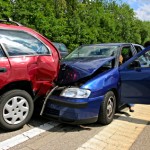 The future of subrogation, especially automotive claims, largely hinges upon the political reactions to the burgeoning autonomous vehicle field. Pioneered by Google and integrated in small ways by various car manufacturers, automation and computer-assisted driving is the future of transportation. In a recent article by Cory Turner at NPR, Turner explores the question of who would be liable in the event of a car crash involving an autonomous vehicle?
The future of subrogation, especially automotive claims, largely hinges upon the political reactions to the burgeoning autonomous vehicle field. Pioneered by Google and integrated in small ways by various car manufacturers, automation and computer-assisted driving is the future of transportation. In a recent article by Cory Turner at NPR, Turner explores the question of who would be liable in the event of a car crash involving an autonomous vehicle?
Turner’s article states that 90% of fatal car accidents occur due to human error and that autonomous cars would help bring down automobile related fatalities. However, there are concerns by many in the automotive manufacturing industry and those in the insurance industry who worry about how accidents involving autonomous vehicles would be litigated. Dang Gage of the Alliance of Automobile Manufacturers worries that “We have great exposure as an industry in terms of product liability . . . And I think as an industry . . . most of us suspect that there will always be someone in the driver’s seat.” These concerns are echoed by Robert Hartwig, president of the Insurance Information Institute who took a shot at plaintiff’s attorneys lamenting: “It’s absolutely the case that after the first accident involving an automated vehicle, there will be an automated ambulance chaser following.”
The most intriguing part of Turner’s article, from a subrogation point of view, is the discussion of a possible remedy for the uncertain liability aspect of manufacturing autonomous cars. Turner recounts the vaccine industry’s own struggle with the threat of litigation stifling innovation. In the 1980s, the rising threat of liability prompted many vaccine manufacturers to pull out of the business altogether. Congress stepped in and created a new system, including special hearings, for dealing with claims made by individuals pointing to vaccines as the cause. The victims were paid out of a fund created by a tax on vaccines. This prompted the return of some vaccine manufacturers.
What does all this mean for subrogation attorneys? Most likely there will be a diminution in automobile related accidents over the next 10-15 years as technology continues to improve and policies begin to coalesce at the state and federal levels. One could see automobiles become more like airplanes in the next decade or two. A driver would have to sit in the front seat ready to take over, but the vast majority of driving is done by computer control. This would likely cut down on accidents, reduce traffic congestion and promise many other unforeseen benefits. When one considers the amount of litigation in courts currently that arises out of automobile accidents autonomous vehicles could prove a boon both for motorists in the form of increased safety and the courts who are perpetually dealing with tight budgets and swelling dockets.
